[Some Whitty Title Pun]
Whitlock’s Book Barn, Bethany
May 2024
I learned something years ago while traveling the backroads of Connecticut, often with one or two children: do not bring them to large used bookstores.
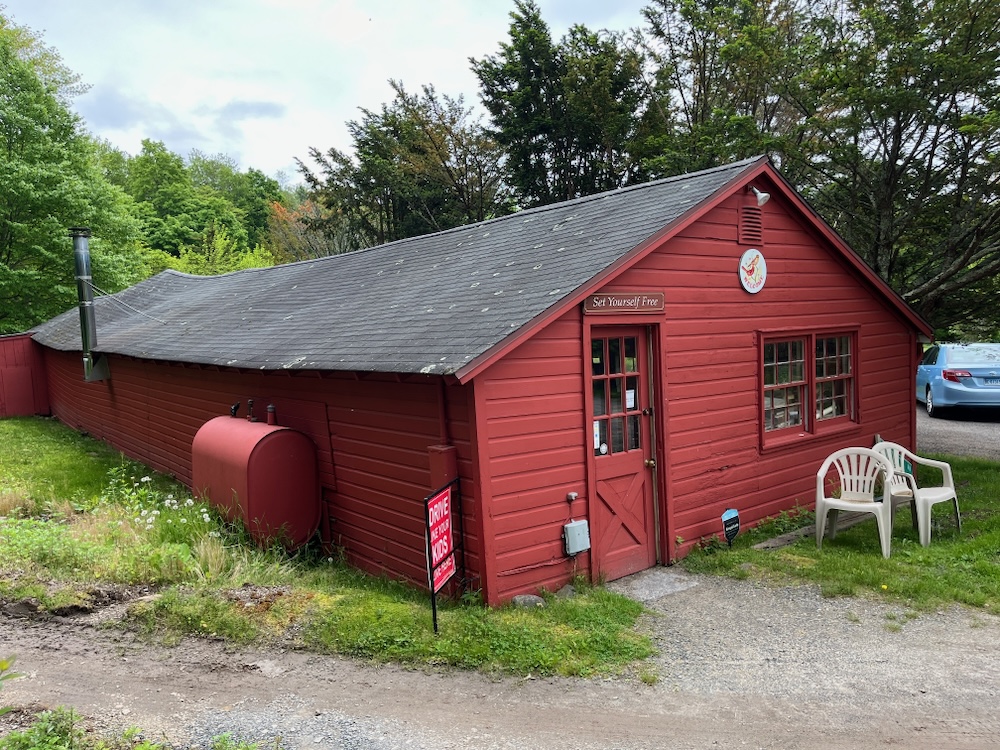
The sign above the door reads, “Set Yourself Free.” (The roof there in the back is a bit concerning.
I need my time. I can’t be rushed or distracted. I don’t just need to peruse, I need to peruuuuuse. And so, after securing a ride home from a soccer game for Calvin, I was free to wend my way across Bethany’s farms and wooded lanes in order to peruuuuuse the shelves at Whitlock’s Book Barn. (It should be “Book Barns” but I’ll try not to let that bother you as much as it does me.)
I’d actually passed by here years ago in the pre-dawn glow of a frigid January morning. I was in the area to hike around Lake Chamberlain and remember thinking, “that’s a used book store? There? Here?!” Yup. Here. In southern Bethany, right on the Woodbridge border.
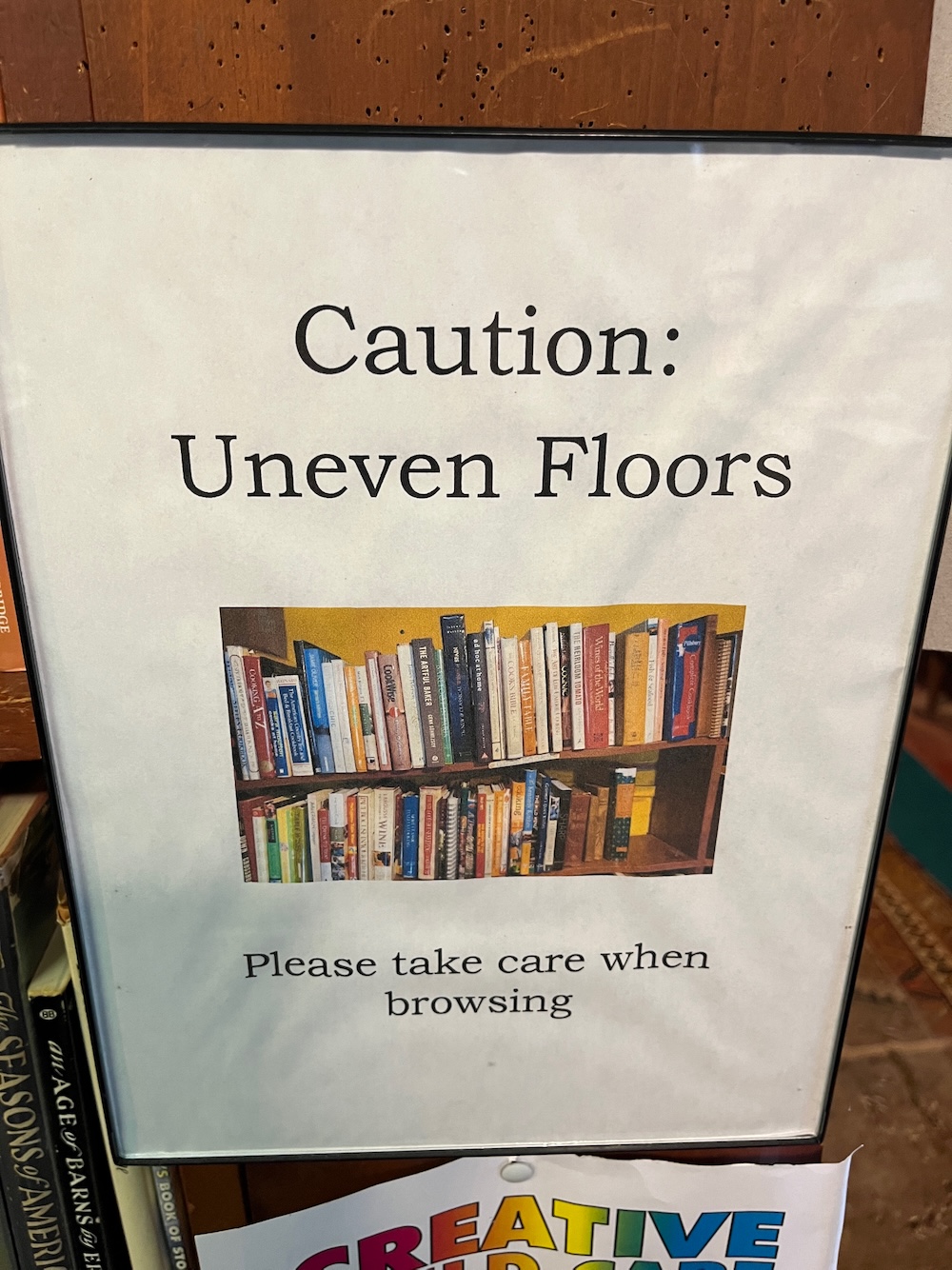
And it’s been here forever.
Since 1948 anyway. Which explains why it’s located where it is, I suppose. Next to a horse pasture and an unpaved road in two rather dilapidated barns. Just the way Whitlock’s likes it. The farm here used to be much larger, of course, as all Connecticut farms once were.
The store has been featured in The New York Times, every Connecticut publication, and the Bethany Historical Society has written 3,000 words on the place. It currently owned by Connecticut’s most infamous lawyer.
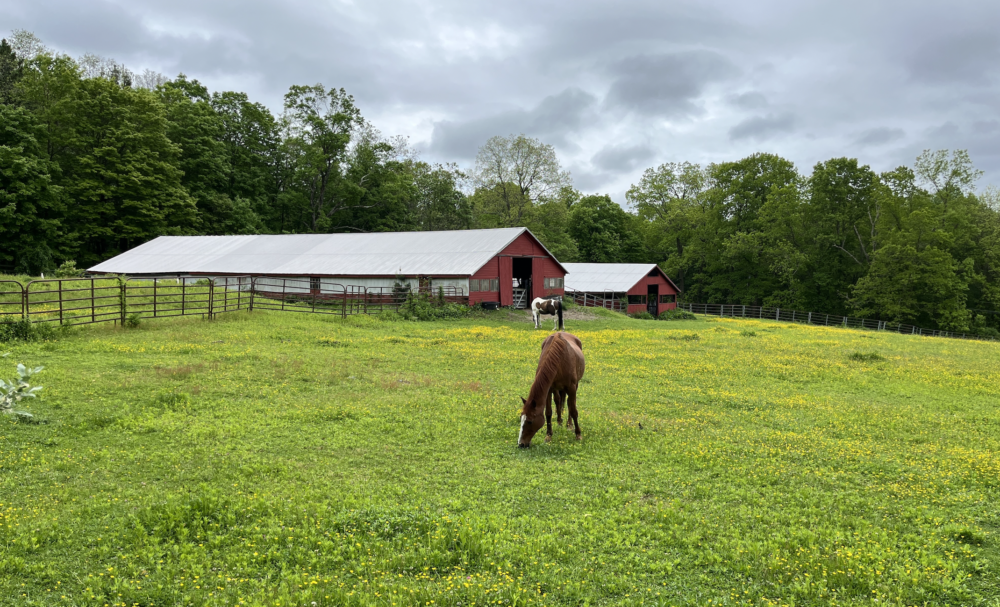
Yeah. This guy:
Attorney Norm Pattis is arguably Connecticut’s most colorful and controversial lawyer — defender of two of the most despised defendants in recent state history, accused wife murderer Fotis Dulos, who died in January after attempting suicide, and conspiracy theorist Alex Jones, who has pushed the lie that the Sandy Hook school killings were a hoax.
For more than 20 years, Pattis has roamed the state’s halls of justice looking for trouble. In that time, he’s been called everything from “attorney Slash and Burn” to “the P.T. Barnum of the courtroom.” Combative, whip smart, fast on his feet, provocative to the point of incendiary, Pattis specializes in cases that make most people cringe. He’s defended everyone from child murderers to rapists — he admits to being particularly drawn to homicide cases. If the allegation is heinous and the defendant reviled, chances are pretty good Pattis is involved.
Suffice it to say that Whitlock’s Book Barn has an interesting history and present.
And its history apparently goes back long before 1948, as it traces its lineage to some guy who owned a secondhand bookstore 8 miles south of the Barns at Yale. That guy was the great uncle of a 12-year-old boy named Clifford Everett Hale Whitlock. After young Clifford’s father died, this guy took him in, sent him to prep school, and let him work in his store.
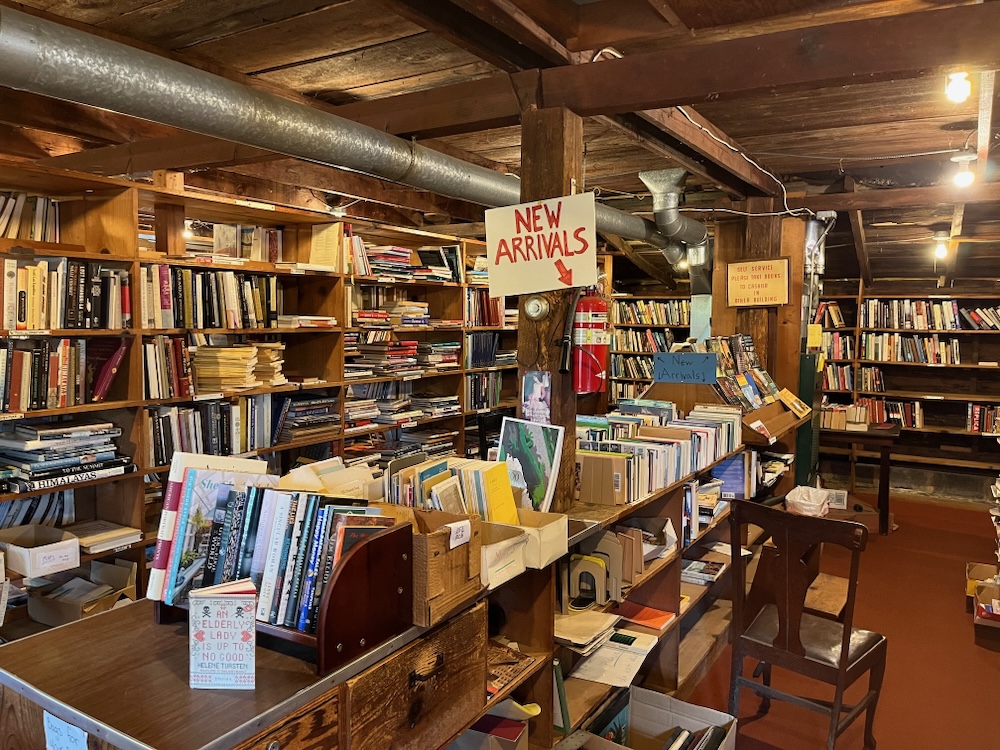
Around the turn of the century – I’m talking 20th century here – The Great uncle sold his inventory to Clifford who kept the store going at Yale; serving as a de facto campus bookstore. Whitlock’s was born.
The store grew and then burned down. Then it grew and burned down. Then it grew again; all in New Haven. Clifford got married and had kids, three of whom would go into the bookselling business: Everett, Reverdy, and Gilbert. In 1917, the family moved to Bethany, which hasn’t changed much in the intervening century; Reverdy described the town as “remote and . . . forgotten by time,” a hundred years ago.
Let’s speed this up already.
The Whitlocks’ Yale store flourished, even as it continually got moved around downtown in favor of new Yale buildings. Another fire burned down the homestead in Bethany. Then came the Depression and everything fell apart, with the bookstore declaring bankruptcy, yet Clifford was able to hold onto the store.
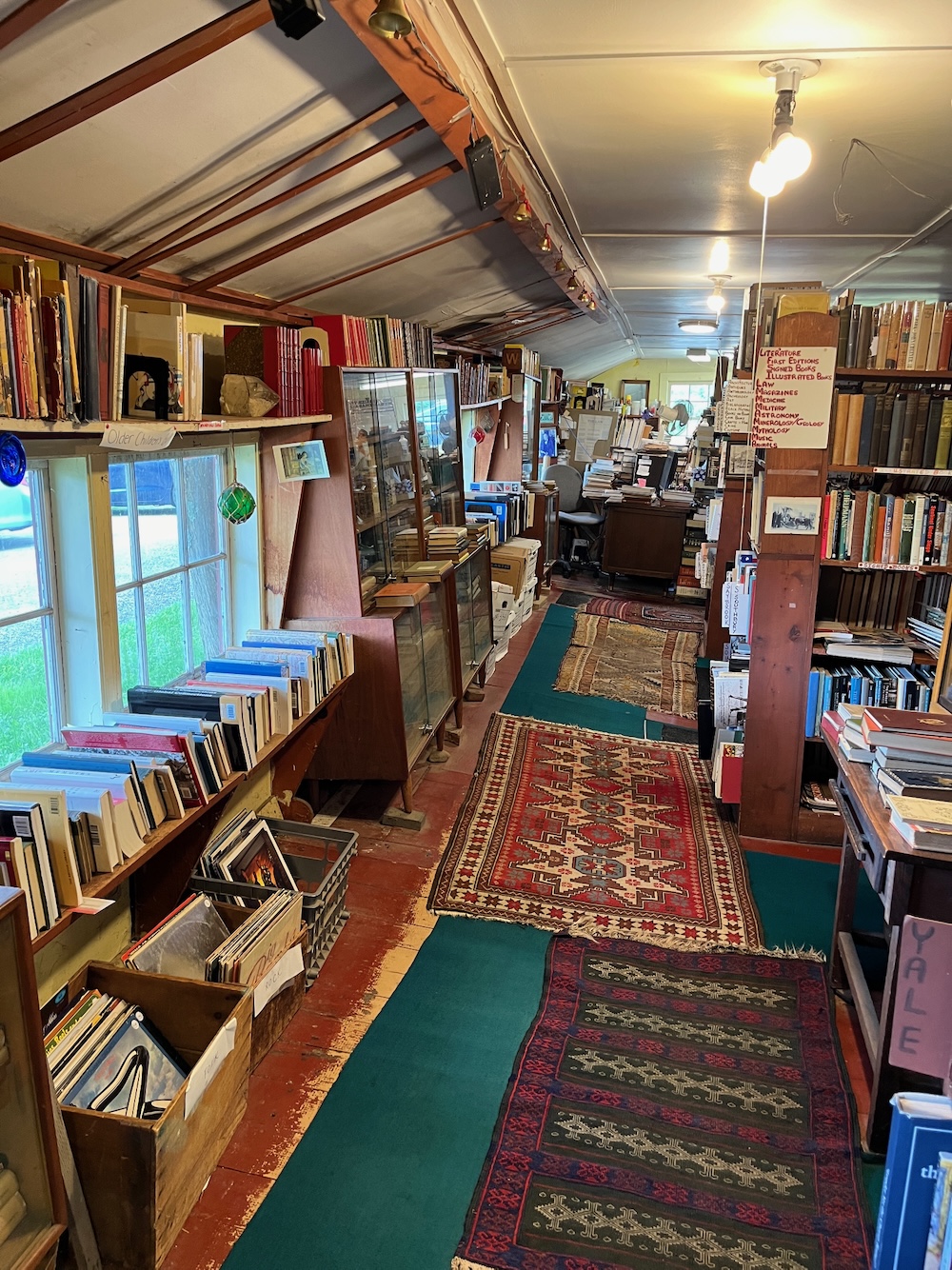
Reverdy Whitlock had graduated Yale in 1935 and started teaching in Washington, D.C. By 1939 he returned to help his father run the New Haven store. He began buying and selling materials in areas reflecting his interest in Yale history and Connecticut history, rare books, manuscripts, letters, and maps. The brothers farmed the land and raised turkeys – the current Book Barn is an old turkey barn.
More fires, more fire loss, more books. Gradually Gilbert moved about 30,000 books into the hayloft of the barn next to his parents’ house. In 1958 he and Everett opened the barn to the public and it drew many customers. They acquired so many books that they began storing them in the farm buildings across Sperry Road, and ultimately decided to move the business over there. The two small barns were remodeled with bookcases to hold over 50,000 books. The loft of the upper barn accommodated 20,000 maps. Whitlock’s Book Barn opened for business in May of 1961. In the early years the lower building was kept open around-the-clock and customers could come any time to read. If they wished to purchase a book they were instructed by a sign to leave the money in a cigar box. This arrangement proved a boon to sleepless booklovers. The playwright Arthur Miller was known to come late at night, at least once bringing his wife Marilyn Monroe.

The buildings and layout today are the same as they were when Arthur Miller scoured the shelves. The New Haven store closed in 1996(!) Reverdy, who retired in Woodbridge, found a rare copy of the Declaration of Independence, one of only about 25 remaining of the 200 printed in Philadelphia during the night of July 4, 1776 at the Thomas Darling House. (Um, wow.)
Everett and Gilbert continued to operate Whitlock’s Book Barn until their deaths. When no one in the family’s next generation wanted to run the business, the property was put up for sale in 2005 and bought by a local lawyer, Norm Pattis, who enabled the Book Barn to continue.
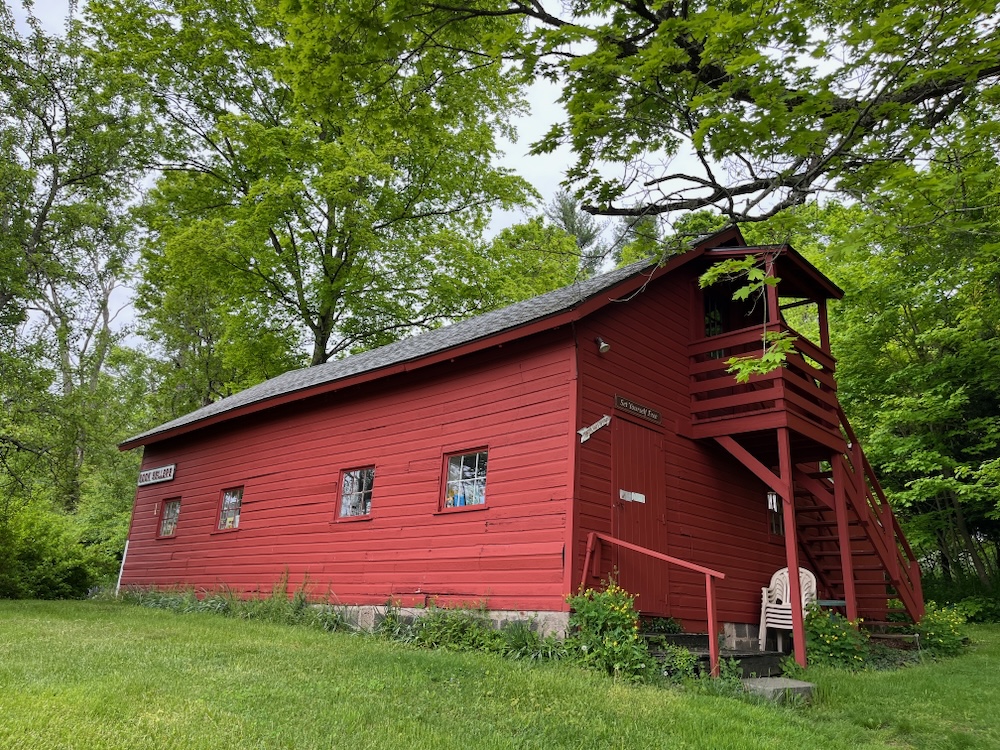
The store doesn’t have as many rarities as they had in the past. They’re still here, but the focus now is simply books. Lots and lots of books. One barn houses the “better books” — collectors editions, leather-bound sets, newly arrived treasures that draw collectors from around the world, but most people climb the hill to the other barn, where all books are marked $5 or less.
I spent some time in the lower barn with all the old stuff. it’s charming and it’s neat to poke around, but there’s really nothing there for me other than a fairly robust shelf of old Connecticut-centric books. I can say that Whitlock’s lower barn wins the award for the most uneven floors of any retail space in the state; perhaps the country. My word.
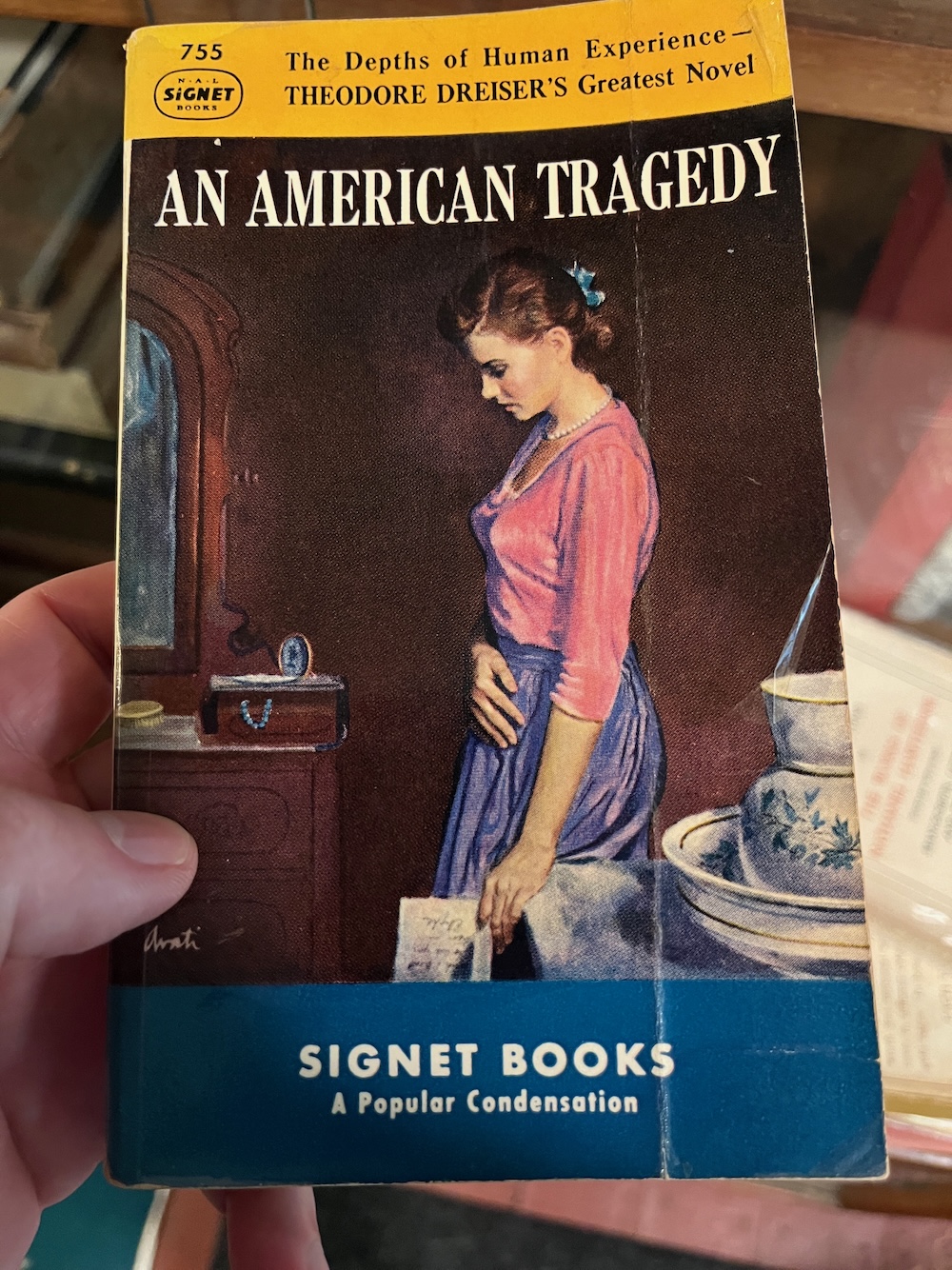
I trolled my wife who was in the middle of reading the 800+ page American Tragedy by Theodore Dreiser, having found “a popular condensation” of it that must have cut out three-quarters of the story. (A story she very much enjoyed, by the way.)
Which brings me to my book lists. Hoang and I have been working our way through the Modern Library Top 100 Novels of the 20th Century for 20 years now – which is why she was reading the 800+ page American Tragedy. But I’ve created and maintain a whole bunch of other “best of” lists and peruse, er, peruuuuuse used bookstores for those titles that I know aren’t at any of our wonderful libraries.
I walked over to the upper barn in hopes of finding some good stuff. (And really, even if I didn’t, who cares? I was having a blast.)
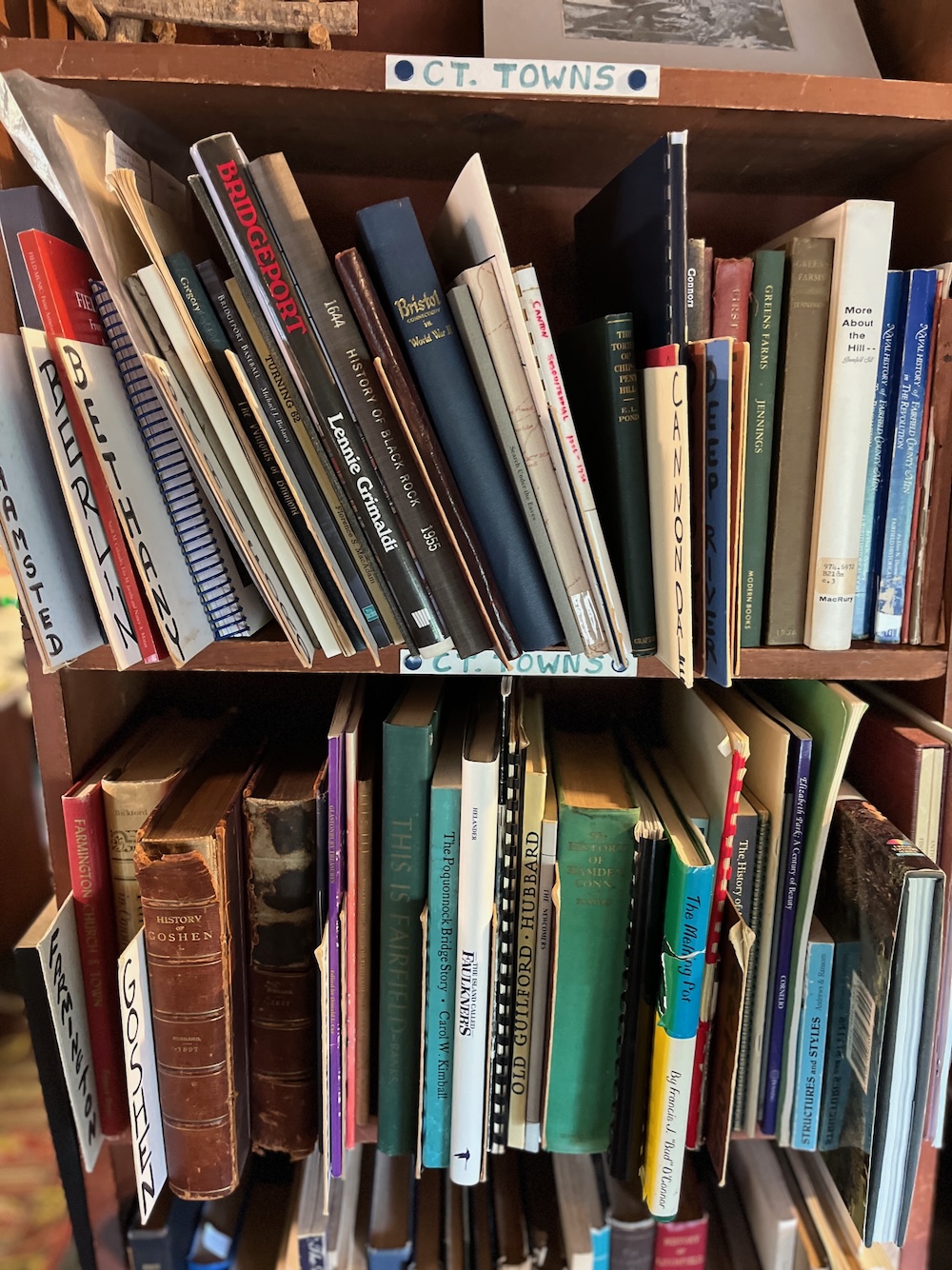
This passage is from 20 years ago, but not much has changed:
Here buyers can find anything from paperback mysteries, novels and plays to foreign language tomes, esoteric monographs on philosophy, religion, and history, and art catalogs housed in shoeboxes. Timing is everything. If customers arrive soon after a major book buy, they could find some real treasures — the personal libraries of renowned Yale and Trinity professors, for instance — all for under $5. The cash register is still hand-cranked, the floor boards sag, the roofs creak and there’s not a computer in the place. In the meadow next door, horses graze.
“The book barn is an anomaly, which is what draws people to it,” said Reverdy Whitlock, 91, another brother who ran a separate book business in New Haven. “If a computer ever goes in that barn, it will lose its charm. It’s the common call of a world pretty much disappearing. We book lovers are all like whales tossed on the beach, aren’t we?”
With the passing of the torch from the Whitlocks to the new owner in 2005, lawyer Norm Pattis and his wife, the store does now have a computer and they do have an online business. It’s funny that the Whitlock name inspires reverence among customers and book lovers from all over. I’m not sure the Pattis name does the same, but I guess people are happy he kept the barns the same and kept them going.
The upper barn is still unmanned in 2024 and operates on the honor system. It also has a section devoted to old maps and prints. You take whatever you might find there down the slope to the lower barn, where someone rings up your order on an old-fashioned cash register.

Not alphabetized!
Finding what you’re looking for is quite the trick though. Books are arranged by section annnnnd… that’s about it. I was interested in finding some old sci-fi titles, if only to come out of there with a purchase. I found the sci-fi section and was a bit taken aback by the fact that nothing here is arranged alphabetically.
That’s not quaint or old-fashioned, that’s insane. I realize this place can’t exactly pay staff to spend hours on end organizing but… maybe? Or does the haphazard insanity of it all add to the fun?
Perhaps it does for some people, but not for me. I enjoy order. I enjoy order so much I almost began to undertake the alphabetizing myself.
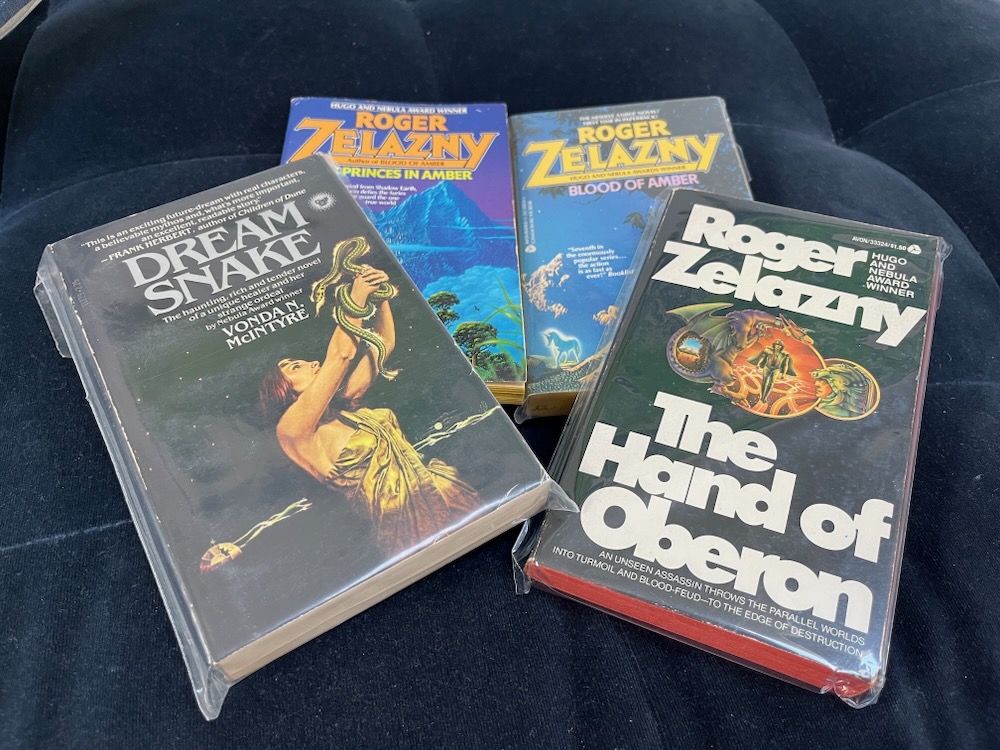
My haul, such as it is
I found three books from Roger Zelazny’s 10-volume “Chronicles of Amber” series (all three or four bucks) as well as the classic Dreamsnake by Vonda N. McIntyre. Not bad.
I wandered the upper barn for quite a while before paying and hitting the road. There are no bathrooms here and it truly is “out there.” As Pattis said in some interview I found, “No one comes here accidentally.” That is definitely true – despite my happening upon it years prior. You don’t go through the unassuming gate if you don’t know what this place is.
And I’m glad I did so… alone.
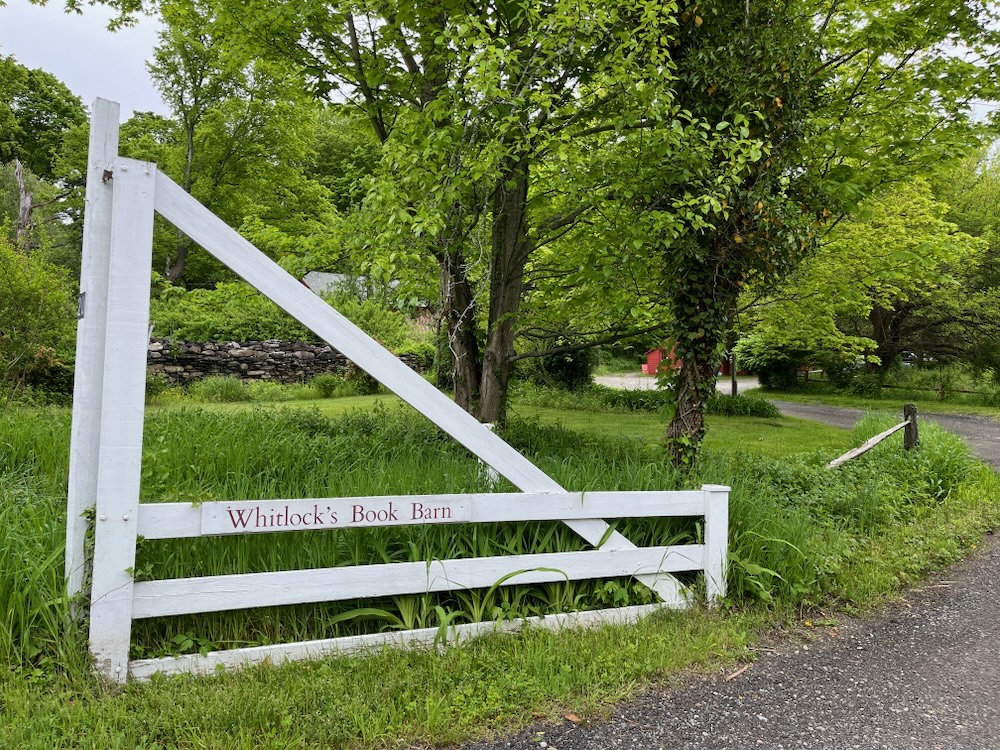
![]()
Whitlock’s Book Barn
CTMQ’s Companies & Businesses

Leave a Reply